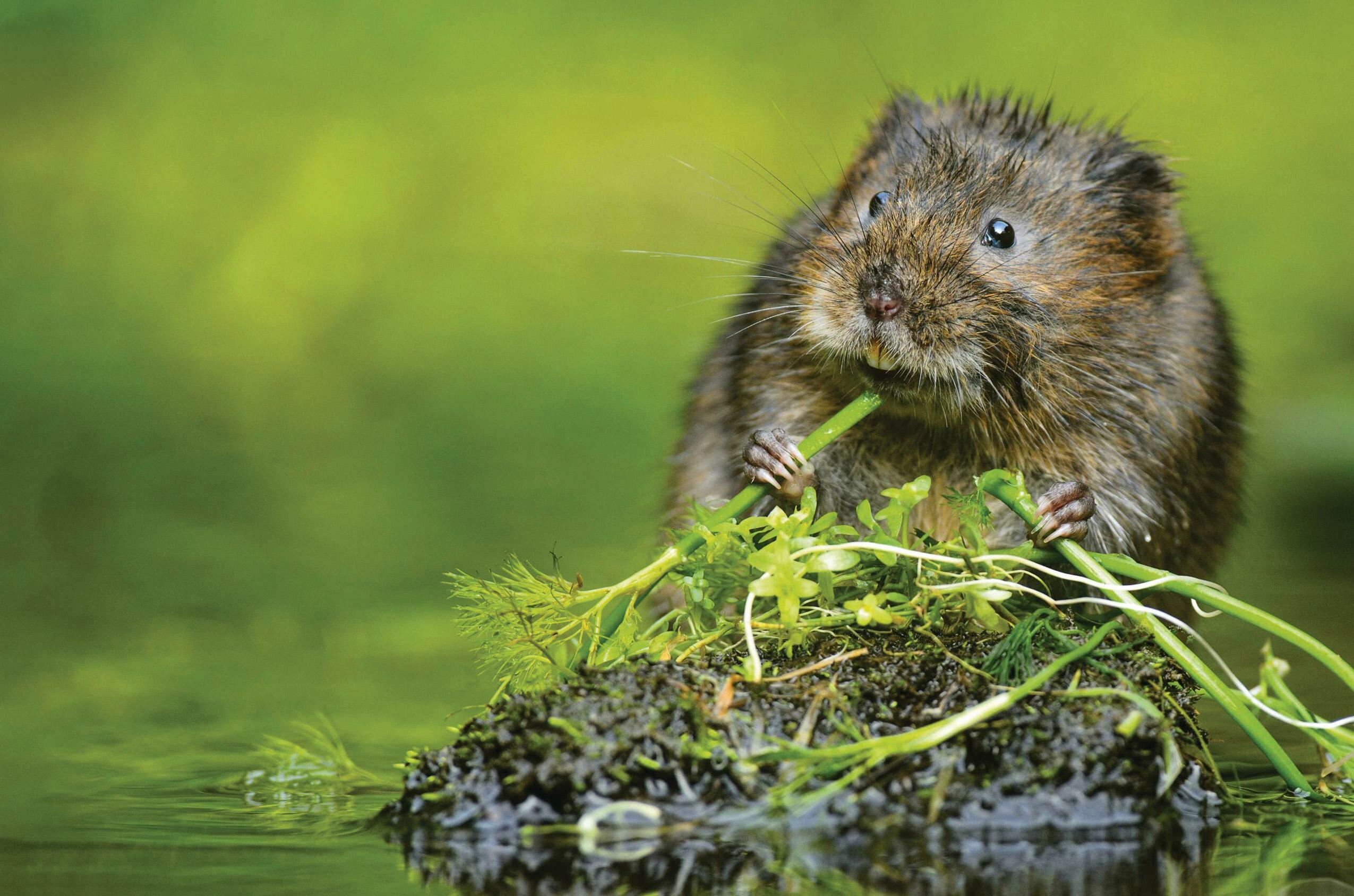
IT'S NOT OFTEN THAT respectable conservationists dare to utter the c-word, but when a small, furred head pops up above its straw refuge, there is more than one exclamation of "Oh, they're so cute!"
We are gathered in the yard of Trelusback Farm, Cornwall, helping to ferry cages from a van and stack them in a small barn, the only refuge from the dour weather. Apples and carrots are being chopped, lists being crosschecked and release cages being readied. Occasionally a soft brown face peers out to observe the proceedings, nostrils flaring to reveal a flash of bright orange teeth.
But amidst the adorable animals, vintage tractors and wistful stories of childhood sightings, we are conscious of the seriousness of the occasion. We are preparing for a groundbreaking moment: 116 water voles are about to take their first tentative steps here, the first time the species has graced south Cornwall for over two decades.
Water voles, small riparian mammals with chestnut-fur, stubby noses and furry tails, were declared extinct in Cornwall in the late 1990s. There were successful releases in north Cornwall in 2014 but, until now, in south Cornwall you were more likely to be confusing a vole with a rat – the two animals can look strikingly similar, particularly during brief encounters. Generations raised on Kenneth Grahame’s Wind in the Willows water vole protagonist, misleadingly named Ratty, can probably shoulder some of the blame for that.
Esta historia es de la edición July 2023 de BBC Wildlife.
Comience su prueba gratuita de Magzter GOLD de 7 días para acceder a miles de historias premium seleccionadas y a más de 9,000 revistas y periódicos.
Ya eres suscriptor ? Conectar
Esta historia es de la edición July 2023 de BBC Wildlife.
Comience su prueba gratuita de Magzter GOLD de 7 días para acceder a miles de historias premium seleccionadas y a más de 9,000 revistas y periódicos.
Ya eres suscriptor? Conectar

SNAP-CHAT
Justin Gilligan on giant spider crabs and holding hands with an octopus

STEPPE CHANGE
Herds of saiga have returned to Kazakhstan, but there's a fine balance to tread

TREES FOR LIFE
Community is at the heart of conservation in the tropical forests of southern Belize

WHEN DOVES CRY
Turtle doves are now the UK's fastest declining bird species, but the RSPB is on a mission to save them

SURVIVAL OF THE CUTEST
We can't help being drawn to cute creatures, but our aesthetic preferences both help and hinder conservation

LIGHT ON THE NORTH
Spectacular images of Arctic foxes, reindeer and musk oxen reveal the wild beauty and diversity of Scandinavia

ROLLING IN THE DEEP
The super-sized crustacean that lives in the deepest, darkest ocean

LET'S GET TOGETHER
Clay licks deep in the Amazon explode in a riot of colour, with macaws the stars of the show

FEMALE OF THE SPECIES
To sponge or not to sponge? That is the question for the bottlenose dolphins (Tursiops aduncus) living in Shark Bay, Western Australia.

7 nature encounters for the month ahead
WITH NATURALIST AND AUTHOR BEN HOARE